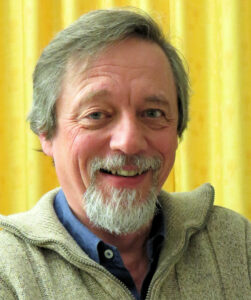Referent*innen

Dr. Frederik Schroyens
Arzt
Belgien
- Dr. Frederik Schroyens is a 1977 medical graduate of the State University of Gent (Belgium) and a 1978 graduate of the one-year Homeopathic Training Course at the Faculty for Homeopathy in London. He is practicing homeopathy since 1978.
- In 1981, Dr. Schroyens became the constitutive President of VSU, the first Flemish homeopathic school in Belgium.
- Since 1986 he became the Scientific Co-ordinator of the RadarOpus related projects.
- In 1993 he edited a printed version of Synthesis, the expanded Repertory linked to RadarOpus. Synthesis exists in 8 languages, successive editions have been printed over 60 times in 6 languages, making it the most widely used homeopathic repertory to date.
- Dr. Schroyens has been lecturing in most European countries as well as in South Africa, Asia, North and South America.
Kurzbeschreibung Vortrag
Hinweis: Der Vortrag wird auf Deutsch gehalten.
Rethinking the Repertory as a Springboard
Homeopathic knowledge can be divided in three domains: the repertory, the Materia Medica and the patient files.
The repertory can be conceived as a springboard between them. As digitalization increases this role becomes even more relevant. Therefore, while expanding the repertory, thoughtful choices must be made.
This lecture reviews the different options that must be reflected upon in this process. Often, a balance must be pursued between opposite aspects. Proving information against clinical information, old provings or new provings, new rubrics or simply add a synonym, expand polychrests or introduce new remedies.
An analysis of the approaches of Kent versus Bönninghausen leads to the optimal strategy for copying remedies to superrubrics.
Finding a rationale for these decisions is the duty of the repertory editor and may be helpful for anyone repertorizing provings or cases.
Kurzbeschreibung Workshop
Hinweis: Der Workshop wird auf Deutsch durchgeführt.
Small remedies strategies – cases
Polychrests and small remedies both cure patients. Well reflected prescriptions and lucky hits may cure patients.
When more than a few remedies did not cure, the question arises whether a small remedy should be thought of.
In this workshop, several cases are revisited to discover different strategies that can be applied in such a situation. Understanding these strategies will help to be more successful finding the small remedy, better than a lucky hit.
Each case will be presented with the precise symptoms, the analysis and a relevant follow up.
